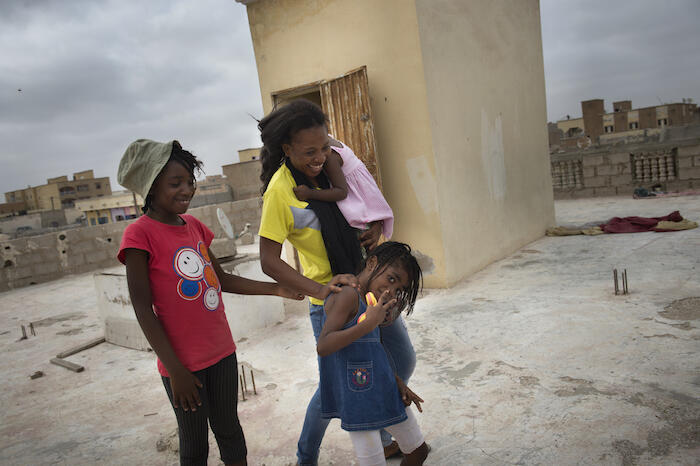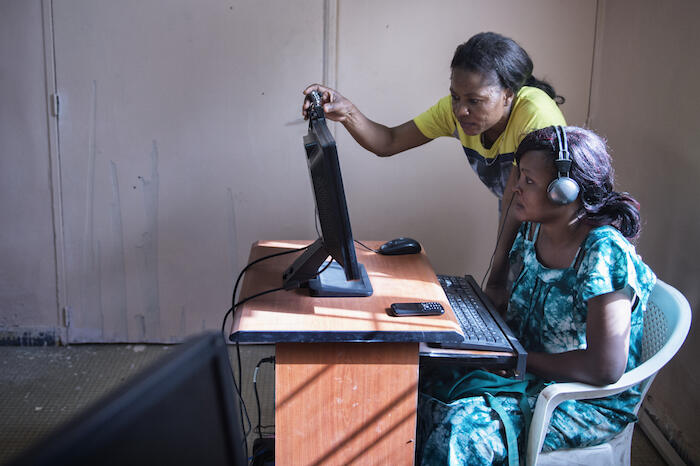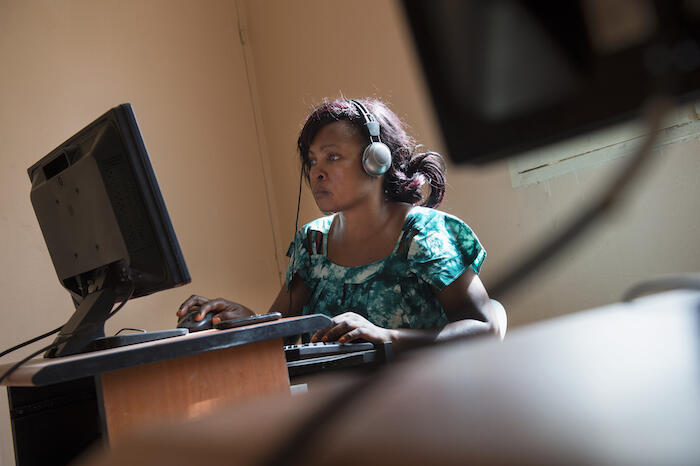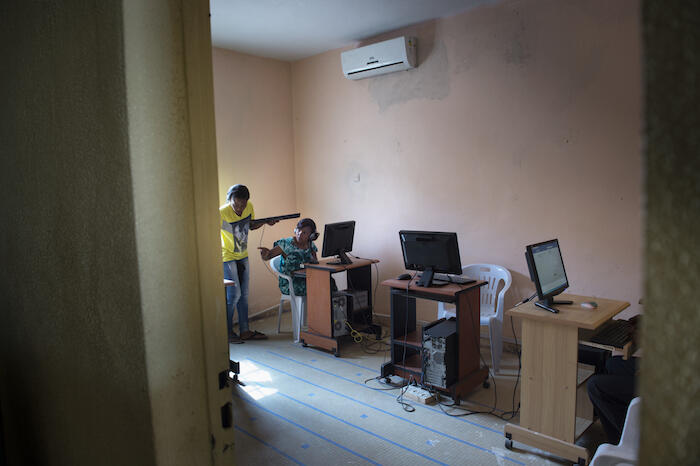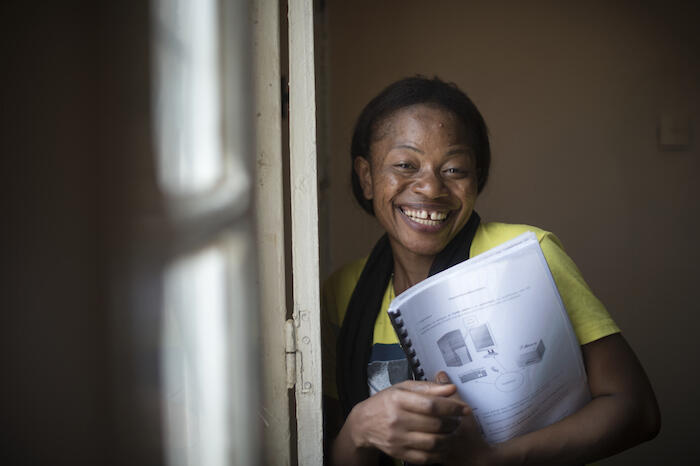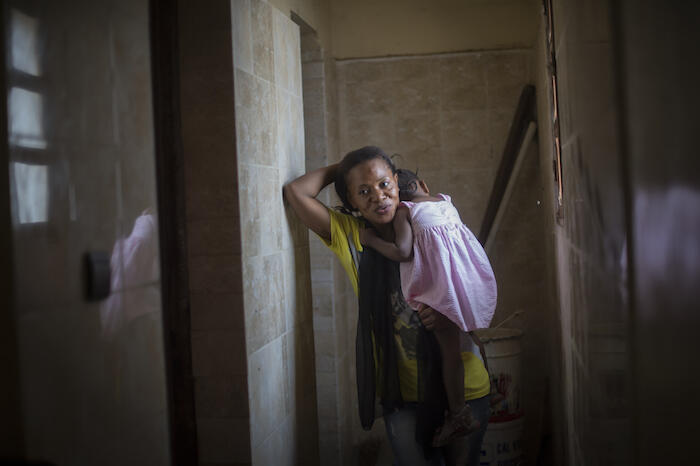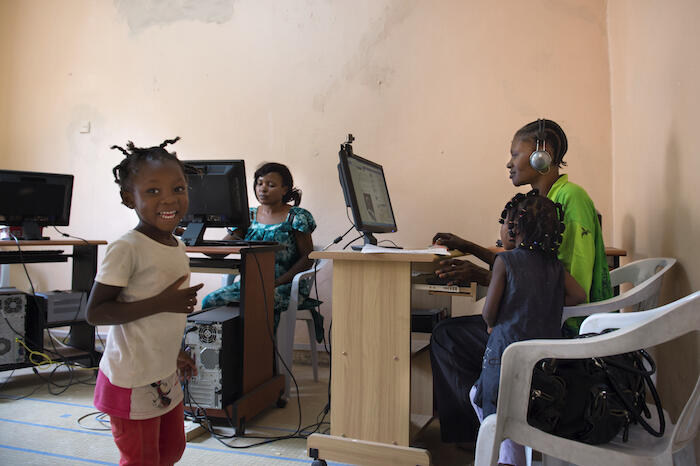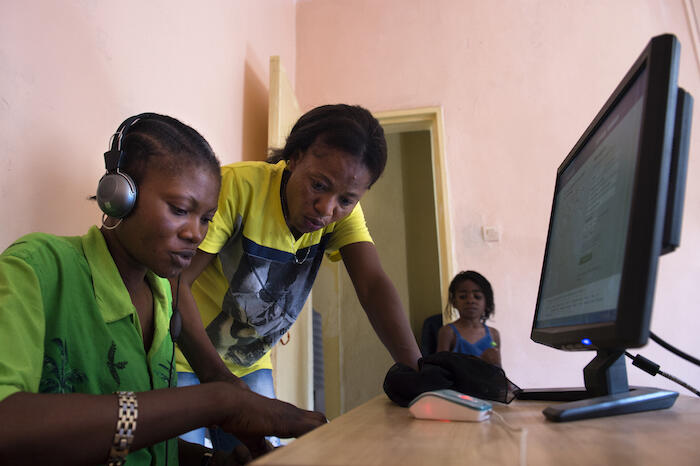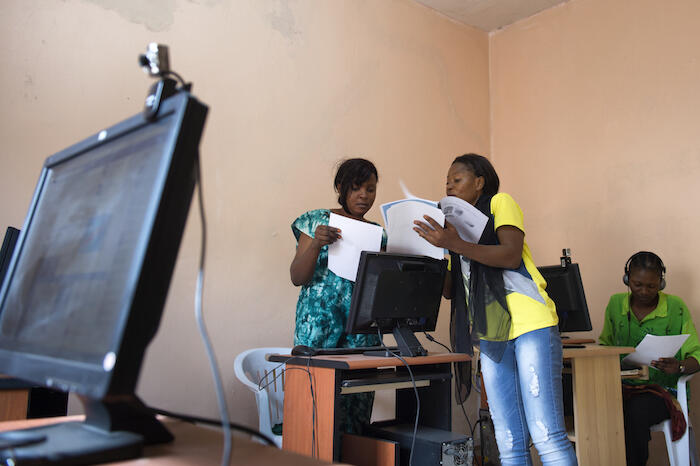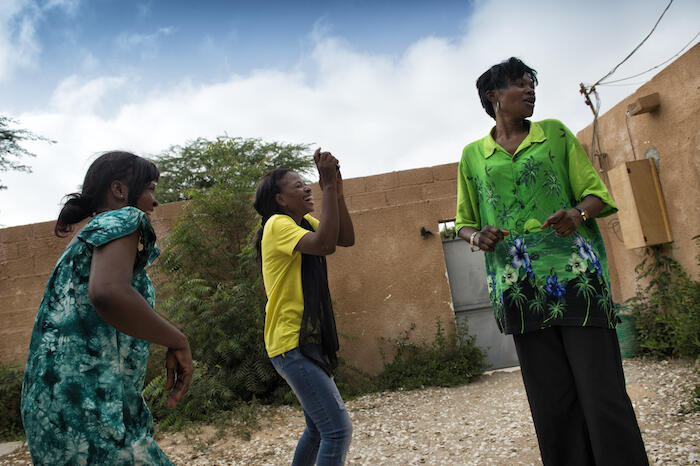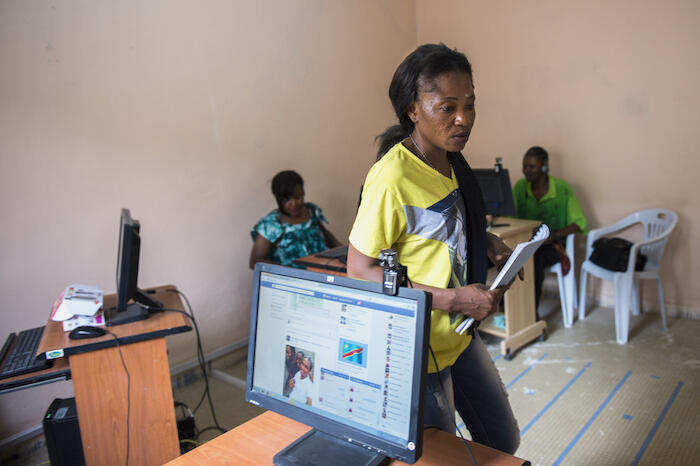The refugees learning to reconnect

The refugees learning to reconnect
The city of Nouakchott, Mauritania, is no stranger to refugees. Around 1,500 people who have fled some of Africa's bloodiest conflicts now call it home. One of them, Budiaki*, is sitting in a computer room at a bustling women's centre when I arrive, using her own experiences of life on the run to help women just like her.
She was 15 when violent clashes in Kinshasa, in the Democratic Republic of the Congo, first uprooted her family. They had reason to worry – her sister had married into the family of deposed dictator Mobutu Sese Seko, putting them all at risk. "I was at school when [a group of armed men] came," the 32-year-old recalls. "I rushed back home to my uncle's place, only to find out that the house had already been taken by the soldiers."
Terrified, Budiaki hid in the slums of Kinshasa, but soon realised that her best chance of survival was to flee. She would never again see her parents, who lived and farmed in the countryside, or her uncle, with whom she had lived.
Her long odyssey then began. It started with a perilous pirogue journey across the mighty, fast-flowing Congo River, which runs between Kinshasa and Brazzaville. On the other side, in the Democratic Republic of the Congo, she managed to find work at a nightclub and met her husband, Oumar.
Soon, the couple had a daughter. With the help of Oumar's father, the family left Brazzaville, where war was also brewing, to start a new life in Mali. But there, the dream quickly turned into a nightmare.
"I rushed back home to my uncle's place, only to find out that the house had already been taken by the soldiers."
In Bamako, Budiaki came face to face with a new threat – female genital mutilation. "There was a huge gap between the female members of my husband's family and I," she says. "They did not have a chance to go to school. Then I saw how little girls were cut. All of them."
One day, Oumar's cousin knocked at her door. "Tomorrow morning, when you will come back from the marketplace, you will find a mutilated baby," she remembers him telling her.
Horrified, Budiaki escaped with her baby, travelling on a truck that belonged to a friend of Oumar's. Once again, she was on the run.
Finally she reached Nouakchott, where UNHCR helped her to start again. After her arrival, Budiaki undertook training at the Women's Centre, where UNHCR offers refugees the chance to study subjects like IT, cooking, tailoring and fashion.
"I'll never forget one student's smile when I first helped her to open a Skype account."
Today, she is a qualified trainer who teaches information technology and acts a representative for refugee women living in Nouakchott. She runs classes three times a week and is currently helping five other women to trace and communicate with their families abroad by showing them how to open a Skype account and research using the web – skills Budiaki knows the value of all too well.
"I know what it feels like when you don't know where your relatives are, and how important it is to communicate with them," she explains. "That's why I chose to be an information technology trainer and help more people find their families. I'll never forget one student's smile when I first helped her to open a Skype account and talk to her family for the first time after they were dispersed."
Sadly, Budiaki is still searching for her own family, with no word from her parents, sister or uncle nearly 17 years after she fled. "I don't know if I will ever see my brothers again, but at least thanks to Internet technology we can keep in touch," she says. "Now I have my own family here in Mauritania. I was not born a refugee, but my kids were. All I achieve is for them. I am now planning to continue training and to apply my IT skills to human resources management."
*Name has been changed for protection purposes


